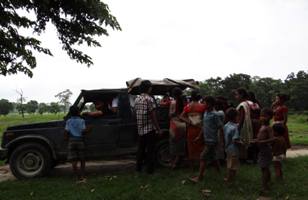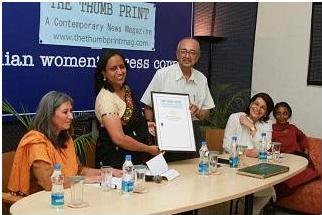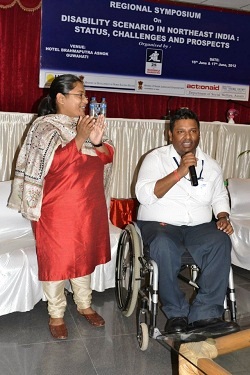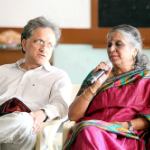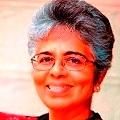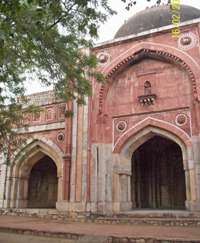That stereotypes can be so reassuring suddenly struck me when I watched an episode of Aamir Khan's highly rated Satyameva Jayate.
Like many others from the Northeast, I too had goose bumps when someone declared in the show that the region has no dowry practice. It is so easy to get carried away by such declarations of our goodness! It is easier still, to wallow in the comfort of the self-certified righteousness that characterizes Northeast societies!
Many stereotypes mark Northeast as a social space in national imagination. The region is insurgency-infested but beautiful; economically and industrially 'backward', the region is home to 'liberal' minded people.
One of the most popular stereotypes is of the Northeast as a land of matrilineal societies. Matrilineal often passes for 'matriarchal' societies - societies where 'exotic' practices of premarital sex and polyandry prevail, aiding the growth of other labels about women from the region, which lack respect.
Unlike strong hold of repressive traditions in rest of India, North Eastern societies are said to be more 'liberal' and 'progressive' in how they treat women. Two things need mention here.
Firstly, the illusion that women get subjected to worse forms of exploitation in 'other' societies than your own, is always comforting.
Secondly, a society's liberality is always judged through visible, even dramatic, forms of discrimination. 'Honour killings' are a rarity in the Northeast. Agreed. But we should not turn a blind eye to forms of gender discrimination that go unnoticed.
Often, these forms are the most dangerous.
Women have no representation in the traditional decision-making bodies of many Northeast ethnic communities. It's a fact. Some women's associations have demanded representation in decision making bodies. Their plea is rejected on the ground that customary laws do not permit such a role for them. It is also a fact that customary law of most ethnic communities in the Northeast grants man direct or indirect control over resources. In many cases, such laws only help strengthen inherent biases.
Dramatizing incidents of violence and discrimination against women in 'other' societies is an old ploy of patriarchy. If 'heroism' has been, historically speaking, a male prerogative, the idea of the 'liberal' ethnic communities is a male construct too. In reality, women from ethnic communities do feel discriminated against. They are victimized not only by outsiders but also by members of their own societies.
During an International Seminar in a Northeast town, I met a faculty and participant from Bangladesh's East-West University. He had travelled by road mostly and was charmed by the splendour of the hills and vales. He said though he was amazed by the landscape's beauty, he was surprised how he hardly saw any men working in the fields. All he saw was women slogging it out.
Most of us in the Northeast have got so used to this sight that we fail to discern any incongruity in the image of an ethnic woman carrying huge piles of wood on her back while climbing hills. We have internalized the cliched images of the non-existence of gender bias in our societies so much, that it prevents us from seeing things in true light.
If only dramatic incidents can jolt us out of our complacency, we have them too! Dowry deaths are on the rise in Assam. Of late, one of the greatest menaces to strike at the social fabric of rural Assam and spreading to newer communities, is witch-hunting.
Many ethnic communities in Assam practice witch-hunting. The cruelty and barbarism associated with witch hunts forces one to look more critically at such non-empirical ethno-scientific practices which are granted sanction as customs.
Patricia Mukhim has expressed surprise how this 'grossest violation of human rights' in Assam does not get the attention it deserves. Being politically correct about social practices of the Northeast has become so important that rights and justice take a backseat. It is not fashionable to talk about witch hunting, a crime which jeopardizes the comfort of wallowing in our endearing stereotypes.
In the process of 'integration' and 'assimilation' with institutionalized religions, many ethnic communities have a deep-seated fear and suspicion of woman. 'Traditional' patriarchal prejudices which existed in spite of the matrilineal systems in some societies, combine with an internalized sense of male authority to produce a dangerous concoction against women.
Patriarchal religious values, indigenous and acquired, strengthen the image of women as jealous, vindictive, secretive and more inclined towards witchcraft.
In nearly all witch hunting cases reported in Assam's media, single women or old couples with land are at a bigger risk of being labelled witches.
People carry out witch hunts not merely for the greed of land but also because of jealousy and lust. Tradition becomes a shield and justification for violence against women. A section of the community is convinced that witch hunting is justified. Another section uses this for its own benefit, sometimes as a revenge tool when women turn down sexual favours.
The construction of the Northeast as an egalitarian and empowering space for women derived both from a lack of knowledge and dependence on colonial anthropological texts.
Gender discrimination is believed to be non-existent or thought fit to be judged by existing social and political structures.
Our obsession with our narcissistic image, and this malignant self-love that characterizes our civic society prevents us from talking about practices of bride-price and facial distortion of our women.
Meera Nanda said in a slightly different context: that ancestral oppressions do not become any less cruel just because they are 'our own', and alien ideas do not exhaust themselves just because they are 'not ours'.
Traditions can be restrictive in certain respects. They can be a way of ensuring freedom and identity in a society beset with insurgency, consumerism and identity politics.
But to uncritically retain traditional customs and practices only to prove that these are still useful in the local contexts would be hazardous. Some traditional values and practices can be liberating, but a lot of them clash with universal values of human rights.
Rapid nation-building exercises that the Indian state undertook after independence changed the lives and societies of people in the Northeast. An effective nation-building tool is a uniform legal system. Somewhere down the line, people realized a uniform legal system goes against the grains of a pluralistic society such as India. The plea for legal pluralism arose. For colonialism, the legal system was a powerful tool to tame natives.
In post-independent India, the realization that modern institutions devalue their culture became stronger by the day among the ethnic communities of Northeast India.
People thought that acceptance and recognition of their customary law, was recognition of their identity. Asserting customary laws and practices became a way of asserting identity. In a region that for some time now has been in the news for secessionist movements, few actually talk about inherent forms of gender discrimination that mark the societies here.
Political correctness marks the writings of many academics, journalists and activists from the region and outside. But it is high time we checked our backyards, shrugging off smugness that is so comforting!





